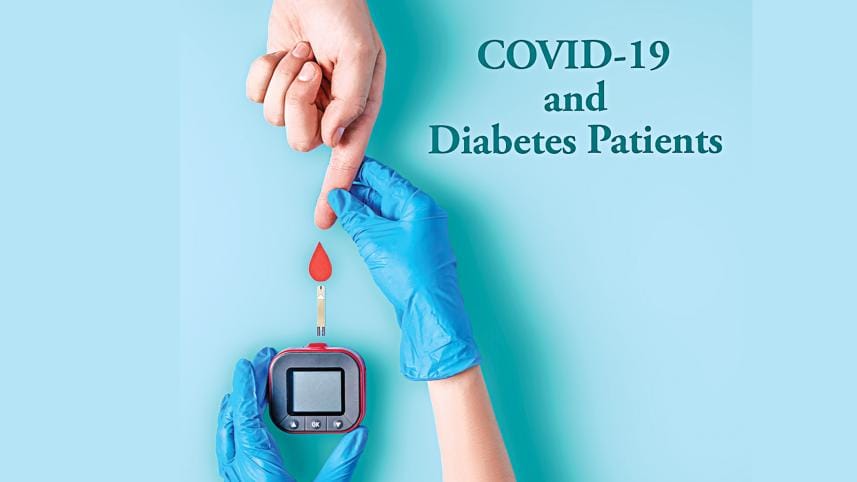Diabetes care during COVID-19

People with diabetes are not more likely to get COVID-19 than the general population. The risk of getting very sick from COVID-19 is likely to be lower if diabetes is well-managed.
COVID-19 is usually a mild disease and around 98% of people affected survive. Most cases (80%) are mild (showing only minimal flu-like symptoms) and people can recover at home. Some cases (around 14%) are severe and very few (around 5%) can result in critical illness. Some people have no symptoms or only mild symptoms of a common cold. In others, COVID-19 can lead to serious problems, like pneumonia or even death. This is more common in people who have other health problems, those with cardiovascular disease, chronic lung disease and hypertension. People with diabetes are among those high-risk categories that can have serious illness if they get the virus.
Everyone with diabetes, including those with type 1, type 2 and gestational (diabetes in pregnancy), is at risk of developing a severe illness if they get coronavirus, but the way it affects can vary from person to person. So, when you have diabetes, being ill can make your blood sugar go all over the place. Your body tries to fight the illness by releasing stored glucose (sugar) into your bloodstream to give you energy. But your body cannot produce insulin to cope with this, so your blood sugars rise. Your body is working overtime to fight the illness, making it harder to manage your diabetes (high sugar). This means you are more at risk of having serious blood sugar highs and lows, as well as longer-term problems with your eyes, feet and other areas of your body.
It is recommended that people with diabetes plan ahead of time what to do before they get ill. This includes having the contact information of their doctor at hand and making sure to have an adequate stock of medications (tablets and/or insulin, or both) and supplies (as glucometer) for monitoring blood glucose at home, so that they do not need to leave the house if they fall ill. Diabetic patients should practice the 'sick day rules' recommended for any stressful situation to improve their diabetes decompensation. Sick day rules for people with diabetes include keeping hydrated, monitoring blood glucose and temperature, and if you are on insulin, also monitoring ketone bodies and follow the doctor's recommendations.
Finally, in response to the COVID-19, governments in many countries including Bangladesh have restricted the movement of their citizens, confining them to their homes. Regular physical activity is of great benefit to the general population and even more for people living with diabetes. Daily light exercise is recommended at home rather than going outside.
The writer is a Consultant, Diabetes, Rheumatology and Family Medicine at Praava Health.
E-mail: dr.pronab@yahoo.com



 For all latest news, follow The Daily Star's Google News channel.
For all latest news, follow The Daily Star's Google News channel.
Comments